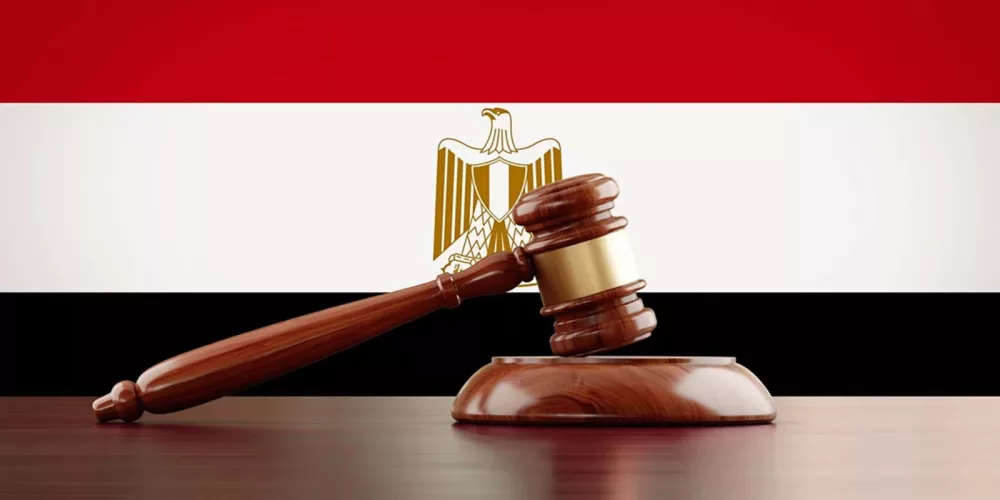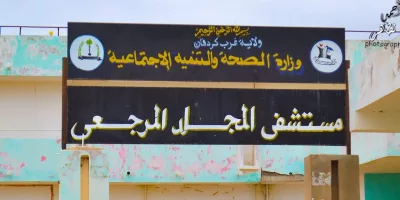The Committee for Justice (CFJ) stated that, as part of its cooperation with UN mechanisms, it focuses on highlighting the dangers of systematic repression by Egyptian authorities through legislative measures. CFJ seeks to clarify Egypt’s legislative framework to UN mechanisms, emphasizing how these laws are used as tools for repression and restriction of freedoms rather than as means for safeguarding security. This approach forms part of a broader policy aimed at tightening political control and undermining fundamental citizen rights, with the hope of encouraging UN mechanisms to intervene and pressure Egyptian authorities to repeal or amend repressive laws to ensure compliance with international human rights standards.
This comes following a joint letter sent by several UN bodies—including the Working Group on Arbitrary Detention, the Working Group on Enforced or Involuntary Disappearances, the Special Rapporteur on Freedom of Opinion and Expression, the Special Rapporteur on the Rights to Freedom of Peaceful Assembly and Association, the Special Rapporteur on the Situation of Human Rights Defenders, the Special Rapporteur on the Independence of Judges and Lawyers, and the Special Rapporteur on the Promotion and Protection of Human Rights while Countering Terrorism—to the Egyptian authorities regarding proposed amendments to the Egyptian Criminal Procedure Law.
The UN mechanisms based many points in their letter on a previous complaint submitted by CFJ, which included a comprehensive analysis of several articles in the proposed law and their contradictions with the Egyptian Constitution, as well as violations of Egypt’s obligations under the International Covenant on Civil and Political Rights and other international treaties to which Egypt is a signatory.
The UN mechanisms’ letter focused on significant concerns regarding specific articles in the proposed law and the overall impact of the proposed amendments on human rights in Egypt. Key concerns highlighted include:
– Extended pretrial detention periods and continued violation of the right to freedom:
The UN mechanisms expressed concerns about Articles 123 and 124, which regulate pretrial detention periods. While some maximum periods have been reduced, they remain lengthy, allowing for extended detention times before trial. The UN mechanisms argued that maintaining such extended periods conflicts with Article 9(3) of the International Covenant on Civil and Political Rights, which stipulates that pretrial detention should be an exception, with its duration minimized as much as possible. They also highlighted the need to address the practice of “case recycling,” which involves re-arresting detainees under new charges, leading to indefinite detention without trial. This practice, lacking adequate safeguards, places detainees at risk of prolonged detention and torture.
– Expansion of public prosecution’s powers:
The joint letter also criticized provisions granting the Public Prosecution in Egypt the authority to renew pretrial detention for up to 150 days for certain crimes without sufficient judicial review, undermining judicial independence. The proposed law also allows the prosecution to impose travel bans and freeze assets without adequate justification or judicial oversight. These expanded powers, the UN mechanisms warned, risk misuse against journalists and activists, threatening their fundamental freedoms. Additionally, the letter noted that imposing such restrictions without judicial review violates Article 62 of the Egyptian Constitution, which prohibits travel bans without a court order.
– Remote trials and their impact on fair trial guarantees:
The UN mechanisms pointed to the proposed law’s provisions allowing the prosecution and judiciary to conduct investigative and trial sessions remotely via video, expressing concerns over the impact on the right to a fair defense. The amendments do not ensure sufficient legal representation for defendants and fail to provide necessary guarantees for the defendant’s presence before the judge. The mechanisms warned that remote sessions could prevent defendants from directly interacting with their lawyers or confronting the judge in person, compromising transparency and increasing the risk of mistreatment.
– Provisions that threaten the right to defense:
The proposed amendments also include provisions allowing the prosecution to deny defendants’ attorneys’ presence during investigations “if deemed necessary to uncover the truth,” contravening the defendant’s right to legal representation from the moment of arrest. Furthermore, the proposed law grants the prosecution powers to prevent attorneys from reviewing or copying case files if it deems this would “hinder the investigation.” The UN mechanisms stressed that these powers hinder defendants’ ability to prepare their defense and violate the principle of equality before the law, breaching Article 14 of the International Covenant on Civil and Political Rights, which guarantees the right to defense and equality under the law.
– Impact on transparency in trials and the principle of publicity:
The amendments also include proposals to restrict the publication or broadcasting of trial details without the court’s approval and to impose penalties on those who publish details related to cases, particularly terrorism-related cases. The UN mechanisms argued that this restriction conflicts with the principle of publicity in trials guaranteed by the Egyptian Constitution and limits the public’s right to follow justice proceedings and access information on matters of public concern. This undermines freedom of the press and expression.
– Guarantees and accountability:
The joint letter also raised concerns about articles lacking effective accountability safeguards for officials, especially regarding potential abuses by government officials during the implementation of the law. The Public Prosecution’s broad powers in extending detention and imposing restrictions persist without strong judicial review mechanisms. The letter emphasized that enhancing accountability and oversight over legal procedures is crucial to ensuring the integrity and independence of the judicial system and protecting individuals’ fundamental rights.
– Questions to the Egyptian authorities:
The UN experts posed a series of critical questions to Egyptian authorities, seeking clarification on how Egypt intends to fulfill its international obligations under the proposed amendments, including:
– How do the proposed amendments to the Criminal Procedure Law align with Egypt’s international obligations to protect human rights, particularly regarding prevention of arbitrary detention and ensuring fair trial rights?
– What measures are being taken to protect freedom of expression and peaceful assembly given the proposed expansions in prosecutorial powers?
– How will authorities ensure that the practice of “case recycling” will not be used as a tool for prolonged detention without trial?
– What safeguards will be implemented to prevent the abuse of Public Prosecution’s powers in travel bans and asset freezes?
– How will authorities secure defendants’ right to defense and transparency, including access to case files and evidence, when implementing remote trial sessions?
– What steps are planned to review the anti-terrorism law to ensure it is not exploited to restrict basic human rights?
– Key recommendations:
In conclusion, the UN mechanisms made several key recommendations to the Egyptian authorities in their joint letter:
– Review pretrial detention durations to ensure they are short and justified in accordance with Article 9 of the International Covenant on Civil and Political Rights.
– Abolish the practice of “case recycling” and introduce safeguards to prevent the use of pretrial detention as a tool for repressing free expression and peaceful opposition.
– Limit the Public Prosecution’s powers in renewing pretrial detention, imposing travel bans, and freezing assets, and subject these powers to judicial review to prevent abuse.
– Ensure defendants’ right to attorney representation during all stages of investigation and trial, and grant full access to case files and evidence to enable effective self-defense.
– Repeal or amend provisions restricting the publication of trial details, enhancing transparency and the right to information on public matters.
– Allow remote trial sessions only with defendants’ consent, ensuring their personal presence to maintain full communication with their lawyers.
– Uphold the principle of publicity in trials in accordance with Article 14 of the International Covenant on Civil and Political Rights, to ensure transparent and fair trials.
– Review anti-terrorism legislation to ensure it respects freedom of expression and protects basic rights, avoiding the restriction of lawful, peaceful activities.
For its part, CFJ welcomes this joint UN letter, which highlights the dangers posed by restrictive legislation on freedoms in Egypt and views it as a significant step in bolstering international pressure to protect human rights in Egypt. CFJ also calls on Egyptian authorities to adhere to the recommendations in the letter and to cease enacting laws that restrict basic freedoms and obstruct the rights to free expression and peaceful assembly in the country.
CFJ underscores the importance of opening civil space and ensuring the participation of citizens and human rights organizations in developing legislation that aligns with international standards, strengthens the rule of law, and protects fundamental rights. This, CFJ asserts, is the true foundation for achieving justice and stability in the country.






